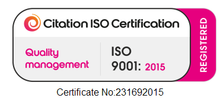
Subacoustech Environmental Ltd
Using scientific principles and the latest research, we provide robust solutions to address underwater noise concerns arising from marine activities
Subacoustech Environmental Ltd
Since 2008, Subacoustech Environmental Ltd has applied scientific principles and the latest research to deliver robust, practical solutions for underwater noise challenges in the marine environment.
Over the past 30 years, it has become increasingly clear that underwater noise from human activity can significantly impact marine species. Sound travels efficiently in water, and often over vast distances, which means it plays a vital role in how marine animals such as whales, dolphins, porpoises and fish communicate, navigate, and detect predators or prey. Additional noise can interfere with these behaviours, making it essential to carefully assess and manage the impact of human-generated underwater sound.
Our team provides world-class expertise to help the marine industry monitor and mitigate noise impacts effectively. We offer comprehensive support across all aspects of underwater noise modelling, assessment and surveying, guiding developers through design, planning, and implementation.
Services
We work carefully to ensure that all our services are designed around the needs and objectives of our clients.
As a result, we offer expertise in:
For full details, see our services page.
Testimonials
Nearshore Construction: Monitoring
Offshore Construction: Modelling
Offshore Wind: Modelling
“Thank you very much for the report - it looks really good and I must commend you on how readable it is.”
- West Ireland
Offshore Wind: Modelling
"I wanted to thank you for your input to the project. As always there were some last-minute changes and your quick turn around and commitment was much appreciated.”
- North Sea






